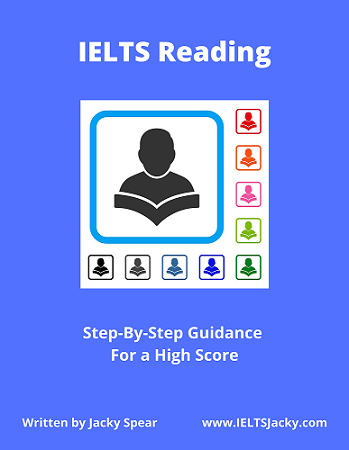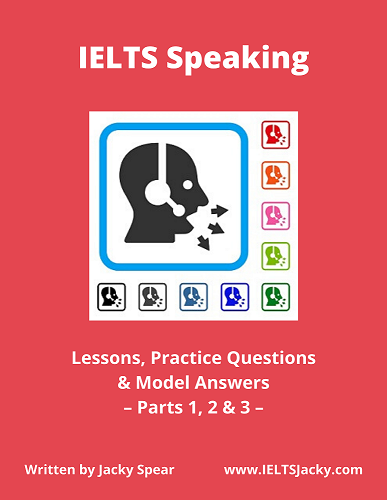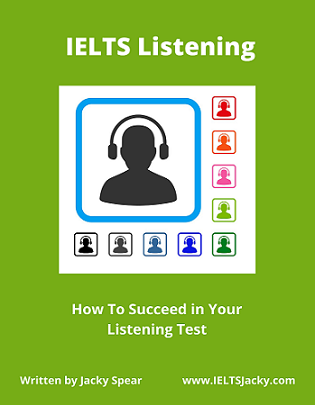IELTS Letter Writing Vocabulary
IELTS letter writing vocabulary includes some very specific words and phrases that you probably won’t use in any other part of the exam. This is the place to learn them.
This lesson covers:
- The greeting
- Do’s & don’ts – useful rules
- Common letter types
- Useful phrases
- The signoff
First, we’ll look at all these points for informal letters and then do the same things for formal letters.
IELTS Letter Writing Vocabulary for
Informal Letters
1) The Greeting
Always start your letter with ‘Dear...’ followed by the first name of the friend, e.g.
Dear Ellen,
You probably use ‘Hi...’ and ‘Hello...’ in emails and texts but for letters, ‘Dear...’ is more appropriate, so stick with this.
It can be helpful to use the name of a real friend who you imagine you are writing the letter to. This will make it easier to sound natural than if you write the letter to an imaginary friend.
2) Do’s & don’ts – useful rules
- Do use contractions
Contractions are the easiest way to show the examiner that you know you are writing an informal letter, e.g.
I’m, I’ve, you’ll, we'd, they're
- Do not use abbreviations or acronyms
Our text language is full of these, for example,
‘Tues’ for Tuesday or ‘Sept’ for September (abbreviations)
‘Thx’ for Thanks or ‘Lol’ meaning ‘laugh out loud’ (acronyms)
They have no place in a letter and you will lose marks by using them.
3) Common letter types
Your General Writing Task 1 question will be on one of these 7 topics. The topics highlighted in red are the ones you are most likely to get for an informal letter.
- A request
- A letter of complaint
- An apology
- A letter of explanation
- An application or resignation letter
- An invitation
- A letter to make an arrangement
We’ll now look at appropriate IELTS letter writing vocabulary for these 5 common types of question.
a) A request
- Please can you….
- I’d be really grateful if you could….
- I was wondering if you would….
- Would you mind….
b) An apology
- I’m very sorry about / that….
- I’m really sorry but….
- I’d like to apologise for….
c) A letter of explanation
- I’m just writing to let you know that….
- I’m writing to tell you about….
- I thought you’d like to know that....
d) An invitation
Make an invitation:
- I’m having a party and would love you to come.
- Do you fancy going to….?
- Would you like to ….?
Accept or decline an invitation:
- I’d love to come....
- Count me in....
- I'm sorry but I can't make it....
e) A letter to make an arrangement
- Are you free on….?
- Would Friday suit you?
- Can you make it on….?
4) Other useful phrases
Here’s some more IELTS letter writing vocabulary that you can use in an informal letter.
Stating purpose
- I’m writing to….
- I just wanted to let you know that…
Thanking
- Thank you….
- Thanks so much for…
- I can't thank you enough
Expressing satisfaction
- I was delighted to hear that….
- I was over the moon to hear about….
- I was thrilled to find out that....
- I’m so happy to hear that..........
Giving good news
- I’m delighted to tell you that….
- I thought you might like to know that...
Giving bad news
- I’m afraid I’ve some bad news to tell you
- I have a bit of bad news to share
5) The signoff
You must sign off your letter correctly. Use one of these phrases followed by your first name.
- All the best
- See you soon
- Keep in touch
For example,
All the best,
Jacky
You would never add your surname when writing to a friend.
Now we’ll look at formal letters.
IELTS Letter Writing Vocabulary for
Formal Letters
1) The Greeting
- Use Dear Sir or Madam if you don’t know the name of the person you are writing to. This will be the most likely situation.
- Use Dear + surname if you do know their name, e.g. Dear Mr Smith or Dear Mrs Jones.
2) Do’s & don’ts – useful rules
- Do not use contractions, e.g. I’m, I’d, you’ll, they're
Contractions are informal language and should not be used in a formal letter.
Write:
‘I am writing to complain...’ not ‘I’m writing to complain...’
‘I would like to apply for...’ not ‘I’d like to apply for...’
- Do not use abbreviations or acronyms
This is the same rule as for informal letters. Save abbreviations and acronyms for texting and social media.
3) Common letter types
Here are the 7 letter topics again. The ones highlighted in red are the ones you are most likely to get for a formal letter.
- A request
- A letter of complaint
- An apology
- A letter of explanation
- An application or resignation letter
- An invitation
- A letter to make an arrangement
We’ll now look at appropriate IELTS letter writing vocabulary for these 5 common types of question. All these phrases use formal language.
a) A request
- Could you please….
- Please would you consider….
- I would be grateful if….
- I would appreciate it if you could….
b) A letter of complaint
- I am very unhappy with / about….
- I write to complain about….
- I am extremely dissatisfied with / about
- I am writing to express my disappointment…
c) An application or resignation letter
- I am writing to apply for the position of….
- I would like to apply for….
- Please find my CV attached.
- I am writing to tender my resignation.
- ….hand in my notice
d) An invitation
- I regret that I am unable to attend….
- I am pleased to accept....
e) A letter to make an arrangement
- I am writing to enquire about….
- I am writing to confirm the arrangements for….
- I would like to know….
- Please can you tell me….
4) Other useful phrases
Here’s some more IELTS letter writing vocabulary that you can use in a formal letter.
Stating Purpose
- I am writing to inform you that….
- I am writing to express my concern / disappointment / dissatisfaction
- I am writing to request…
- I am writing with regard to…
Thanking
- Thank you for…
- I very much appreciate…
- No words can express my gratitude...
- Thank you for your attention to this matter….
5) The signoff
You must use a suitable phrase to end your letter. One of these examples will be appropriate for most letters.
- I look forward to hearing from you.
- I hope to hear from you in the near future.
- I await your response.
- I expect to hear from you soon.
- I thank you for your consideration.
- Please respond at your earliest convenience.
There are three ways you can sign off your letter:
- Yours sincerely
- Yours faithfully
- Kind regards
Follow these rules when deciding which to use:
- Yours sincerely – if you started the letter with ‘Dear + surname’, e.g. Dear Mr Jones
- Yours faithfully – if you started the letter with ‘Dear Sir / Madam'
‘Kind regards’ is formal but friendly and is also appropriate for most situations. It is particularly useful if you struggle to remember how to spell ‘sincerely’ and ‘faithfully’.
Always sign off a formal letter with your full name, e.g.
Kind regards,
Jacky Spear
Practice
using this IELTS letter writing vocabulary on past exam questions and it will
soon become familiar.
Also, study the lessons on How To Write Informal Letters and How To Write Formal Letters for more help on how to use the language.
Additionally, there are sample letters in the lessons on the 7 different types of letter. You’ll find these lessons in the menu below.
|
Want to watch and listen to this lesson on IELTS letter writing vocabulary? Click on this video. |
IELTS General Writing Task 1 – All Lessons
IELTS General Writing – A summary of the test including important facts, test format & assessment.
Letter
Format – The format, the 7 topics, letter
structure, formal & informal, assessment & marking criteria, sample
questions. Essential information you need to know.
Letter Writing Tips – Learn top tips on how to meet the assessment and marking criteria and achieve a high score.
Letter Writing Structure – Find out how to use this easy to learn letter structure to write a high-scoring letter. Includes a model answer.
How To Plan a Letter – Learn a simple 5 step process & 6 part letter structure. Also, help to understand the question & generate ideas.
Formal or Informal – How to decide what type of
letter to write. Sample questions & 2 model letters.
Letter Writing Vocabulary – Learn useful phrases to help you achieve a high score. Also, know how to start & end your letter.
How To Write an Informal Letter – Step-by-step instructions, simple 4 step plan & 6 part letter structure, model letter.
How To Write a Formal Letter – Step-by-step instructions, simple 4 step plan & 6 part letter structure, model letter.
Letter Topics – Learn the 7 most common letter topics & other popular subjects. Includes 20 sample questions.







